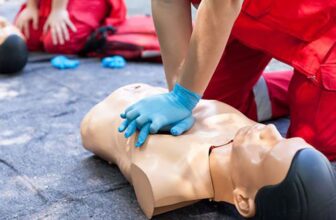
When you enroll in college, you will be given a schedule and the courses that come with it. The assigned classes indicate what level your expertise is in and what subjects will make up your curriculum.
Having a schedule prepared by your respective colleges will help you know what to expect. Most students are not ready for their classes, which leads them to feel the stress of studying for every class they have.
When given a college schedule, you should study to increase your confidence level as a student. You can also check edutized.com for fast answers and have more knowledge on what to do.
Some tips on how to improve your studying skills are discussed below.
Table of Contents
#1. Know your subject well

Source: pexels.com
Before you can start studying for any class, you need to know the course outline. This way, you will understand how you should research and what areas of knowledge are more important than others.
The more information about your subject, the better it is since knowing everything there is to know about your topic will guarantee you a good grade.
#2. Memorize and understand the material
Memorizing can be tedious, but not if you’re interested in what you’re studying. It also helps that several online resources can help students with memorization techniques such as making mnemonics.
The more you understand the material, the better your chances are of getting good grades. It is frequently challenging to explain what you’ve learned or tried to learn because it can be difficult, but explaining the subject will not be as hard if you study something that interests you.
#3. Don’t cram
Cramming for any class is not the best idea. Cramming makes you feel like you know what you’re studying, but in reality, no matter how much preparation you’ve done before the day of the exam, it will not be enough to pass because there are still things that should have been appropriately studied.
#4. Take notes

Source: unsplash.com
Along with memorizing your content, you should also take notes. Note Taking is one of the most effective studying methods because it allows you to write everything essential and remember what you’ve learned.
#5. Study regularly
Studying regularly is better than cramming throughout the week or on the day of exams. This way, aside from having some time to rest, you will also avoid getting too stressed out.
#6. Ask for help
If you feel like you’re not doing an adequate job studying for your class, ask for help from your teachers or classmates. Discuss with them what’s giving you trouble, and they may be able to provide the solution that will make it easier for you to study.
#7. Take practice tests
Taking practice tests for your subject matter is one of the ways that you can see if you’re studying well. Taking a test will give you an idea of whether you’ve learned what’s essential or not, and it also makes handling the actual exam more bearable.
#8. Remember to study what you don’t understand

Source: pexels.com
Just because you’ve read the chapter, don’t assume you already know everything about the topic. If you still do not understand or have not mastered things, spend some time reading over them again and figuring out why particular concepts are essential.
#9. Use flashcards
If you feel like memorizing is taking too long, use flashcards to help you remember. All you have to do is make a note of what’s essential and record it on the back of the card. The next time, record your answers for each question on the front side so that you can check if there are any mistakes before moving ahead with other cards.
#10. Take a break
Studying is easier if you take some time to rest after long hours of studying. Going on without any breaks will only make it harder for you to keep up since you’ll get tired sooner. You can study while taking your break by reviewing the things that you’ve learned before.
#11. Study with friends

Source: pexels.com
Studying in small groups or with friends is better than studying alone. It will keep you motivated, and you can also discuss what’s important with one another so that everything will be clearer to everyone.
#12. Study after each class
If you can attend your classes, consider going to the following lecture or review session that comes up after your class ends. You’ll get to know the things that you’ve missed, and there’s also a chance that your professor may go over important topics.
#13. Take notes for other subjects
You can also take notes while studying other subjects, even if it is unrelated to what you’re studying for school. This way, you’ll be able to determine whether it will be good to review the class later on or not.
#14. Have a study group

Source: unsplash.com
If others in your grade want to take the same subject, you may form a study group with them. You can divide between who takes notes and who does problem sets and ask each other questions if something is unclear so that you’ll all learn better.
#15. Study early in the morning
You’re more focused and less distracted if you study early in the morning. It is because your mind and body haven’t started working yet, and it’s easier to stay awake when studying.
#16. Study at night
If you want, you can study at night instead of early in the morning since there will be less distraction from classmates and other things. However, it’s essential to be aware that you’ll feel more tired if you go on for too long, so don’t stay up all night studying.
#17. Set small goals

Source: unsplash.com
Rather than setting your goal as passing the class, it’s better to set smaller goals first, like finishing each chapter or problem set. If you know that there are several things that you’ll need to do first before you can study the bigger parts of the subject, it will be easier for you to learn everything if you take things one step at a time.
Final Points
It’s essential to keep these things in mind when you plan on studying for your exams or any test that you’ll need to take. Far too often, people put off learning until the last minute, which is why they don’t prepare as well as they should.
If you follow what’s written here, it will be easier for you to understand what you need to know, and it will be easier for you to review everything. This way, you’ll be able to do better in your exams or tests!
All of the tips mentioned above are very helpful when it comes to studying, which is why if you want to do well in your classes, it’s your responsibility as a student to know how to improve your studying skills.







